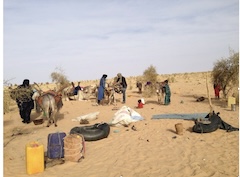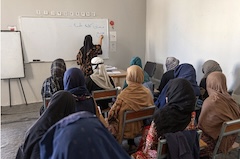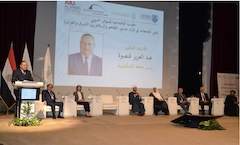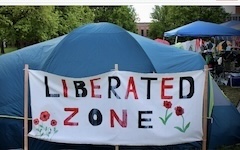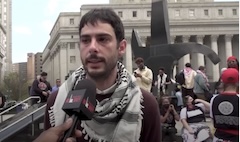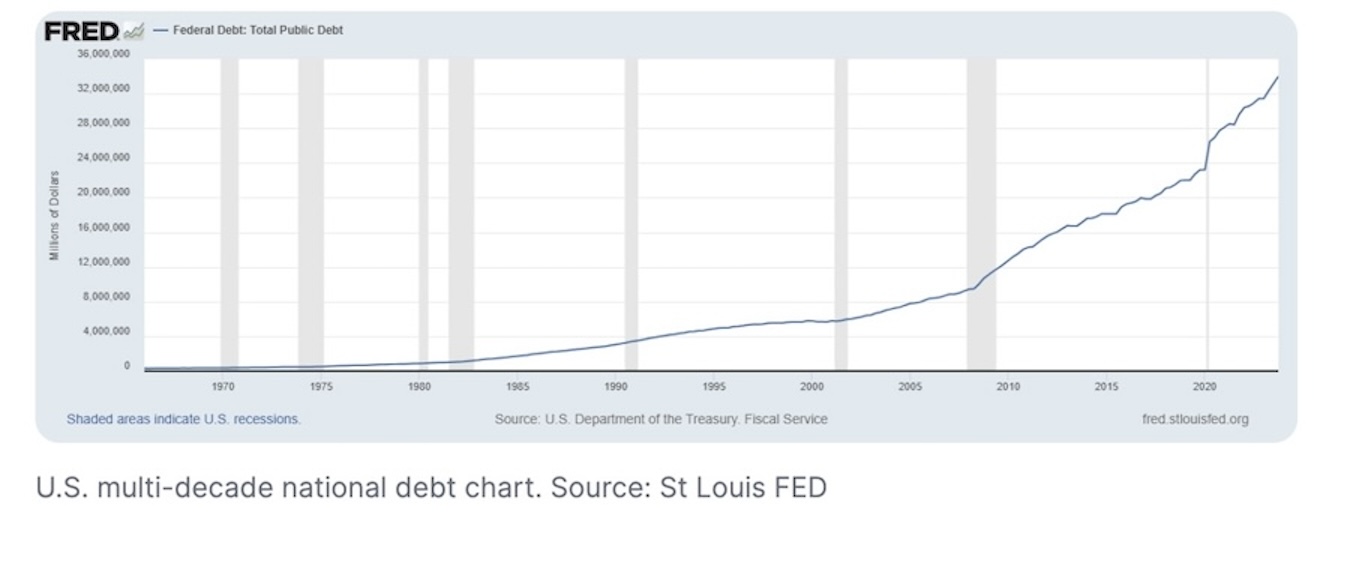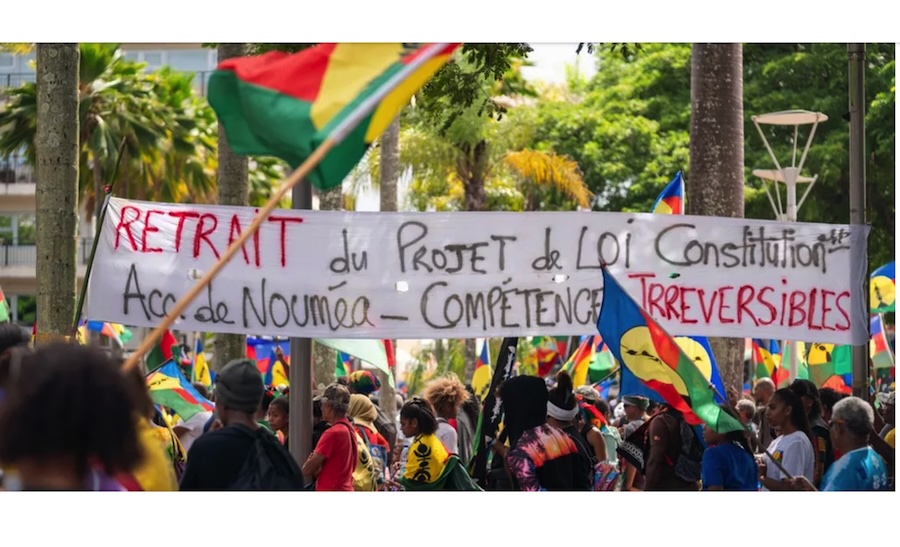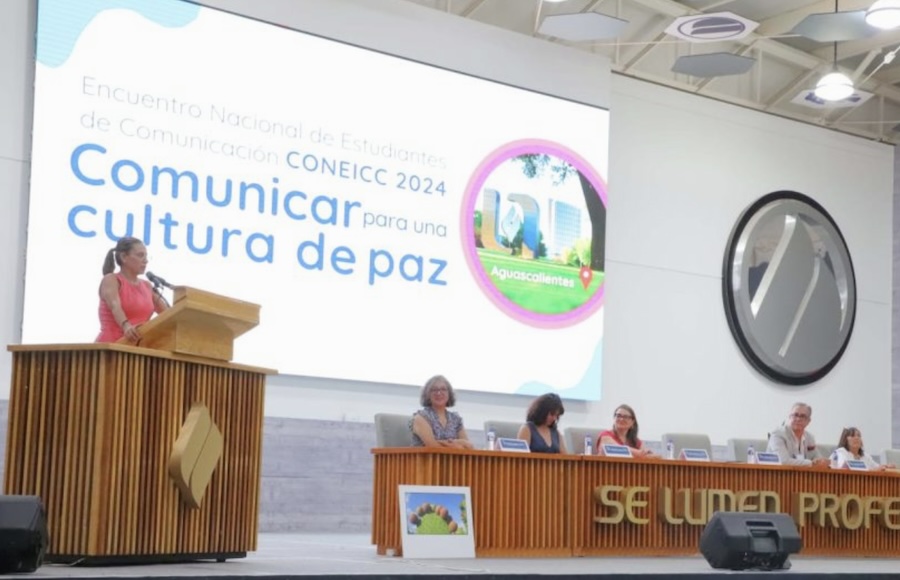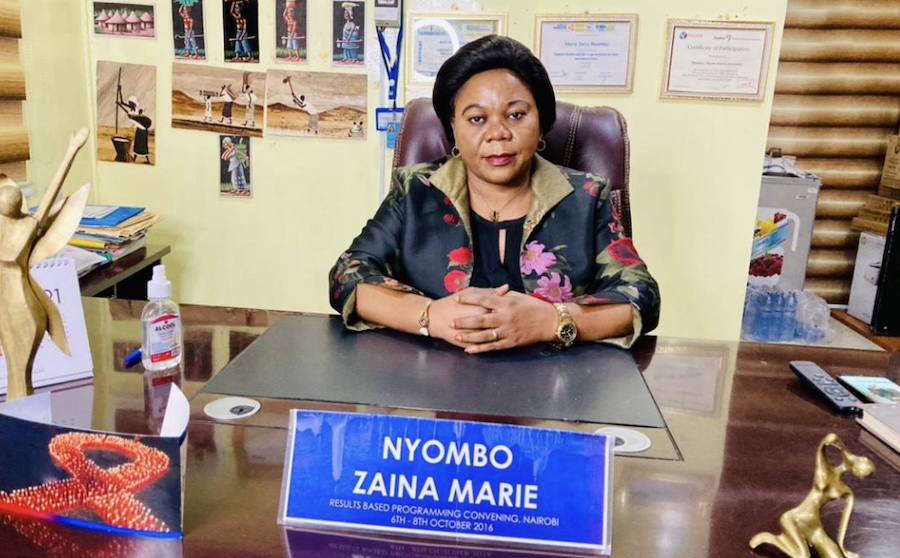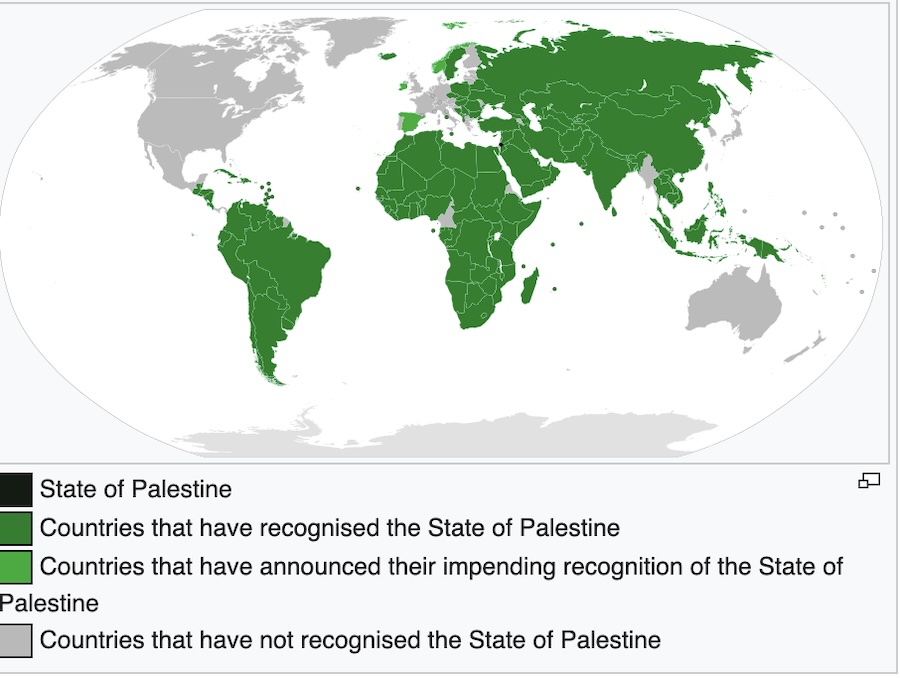. . HUMAN RIGHTS . .
An editorial by Richard Falk from Common Dreams
The International Criminal Court this week made the first truly historic move since its establishment in 2002, with its chief prosecutor recommending arrest warrants against two top Israeli officials, Prime Minister Benjamin Netanyahu and Defense Minister Yoav Gallant, and three prominent Hamas leaders.
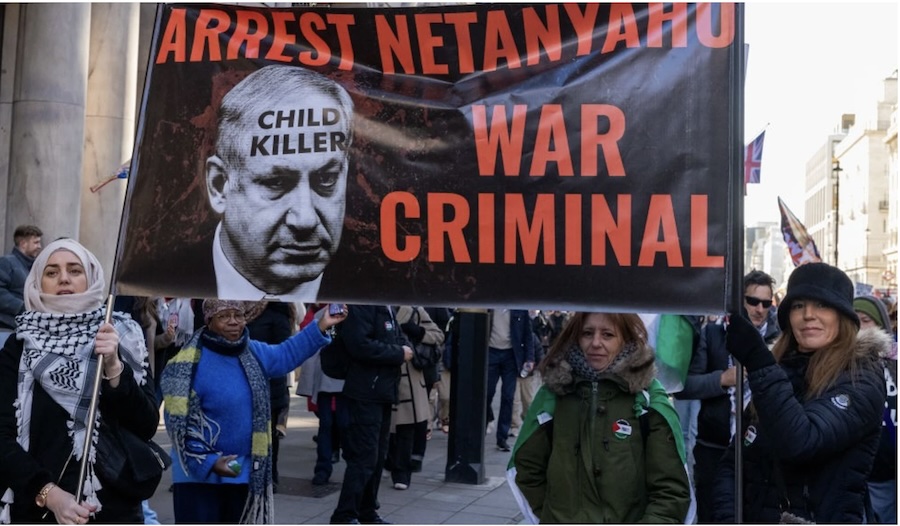
As expected, both sides have denounced this ICC action in the strongest possible language. Because of Western media bias, the angry reactions from Israel and its allies have dominated the news cycle, while the official statement from Hamas has been largely ignored.
While each side chose a similar line of argument, there is a 180° difference in their substantive outlooks.
Israel’s most fundamental objection to the prosecutor’s action is the supposed equivalence drawn between Hamas, which perpetrated the barbarous attack of October 7, and the democratically elected government of Israel, which says it acted to defend itself and restore the security of its population.
Hamas and its supporters are also appalled at the equivalence implied by the call for arrest warrants, which “equate[s] the victim with the executioner” in the context of an oppressive Israeli occupation that affirms Palestinian legal rights of resistance, including recourse to armed struggle.
In my judgment, the Israeli response is rhetorical and polemical, to the effect that Israel and its leaders can never be accused of criminality in a context shaped by what happened on October 7, identified as the worst attack on the Jewish people since the Holocaust.
Netanyahu called the recommendation for arrest warrants “a moral outrage of historic proportions”—a “travesty of justice” that sets “a dangerous precedent,” interfering with the right of democratic states to defend themselves.
Defense Lacking
What is missing from the Israeli response has been any defense against the specificities of Israeli behavior, viewed around the globe as amounting to genocide, as evidenced by growing protests even in the U.S., Israel’s most unwavering supporter.
The crimes and the evidence are delimited in the language of law, and they are certainly of a magnitude and severity to require a good-faith substantive response by Israel. Nothing less can convince world opinion that the ICC prosecutor exceeded his writ by proposing arrest warrants.
It is especially relevant to refer back to the International Court of Justice’s near-unanimous interim order in January as evidence that the charges against Israel’s leaders are hardly a disgrace or a dangerous precedent. That ruling gives firm, if provisional, grounds for believing that Israel’s violence after October 7 constitutes a deplorable instance of sustained genocide targeting the entire civilian population of Gaza.
(continued in right column)
How can war crimes be documented, stopped, punished and prevented?
(continued from left column)
To a far lesser extent, the same criticism applies to the Hamas response. Although the prosecutor should have addressed the context of a long abusive occupation and victimization in violation of international humanitarian law, this does not confer impunity on such criminal excesses as were committed on October 7.
The call to issue arrest warrants against Hamas leaders is dubious because of the absence to date of an impartial international investigation into what actually happened on October 7, and of evidence that the Hamas leaders—as opposed to other Palestinian resistance entities, such as Islamic Jihad—have been properly singled out.
It should come as no surprise that the U.S. leapt to Israel’s defense, joining in a rather mindless attack on the credibility of this treaty-based global tribunal, which has a mandate to investigate and take action against perpetrators of international crimes.
Although U.S. officials now complain about jurisdictional obstacles to indicting nationals of countries that are not parties to the ICC’s Rome Statute, Washington enthusiastically supported the court’s hasty indictment of Russian President Vladimir Putin soon after the 2022 invasion of Ukraine. Such double standards exhibit moral hypocrisy and juridical nihilism, with the U.S. invoking international procedures as foreign policy instruments rather than universally applicable norms.
Irrelevant Statement
In a striking phrase that could have come from the Israeli government, U.S. President Joe Biden said on Monday, “Whatever this prosecutor might imply, there is no equivalence—none—between Israel and Hamas.” He backed up this legally irrelevant statement with the categorical assertion that “we will always stand with Israel against threats to its security.”
Again, this is irrelevant. The only question is whether the evidence supports the issuance of arrest warrants. In reiterating such a one-sided stance, Biden is reinforcing the complaints of protesters everywhere that Washington is complicit in the most transparently reported genocide confirmed in real time, and not in retrospect or abstractly, as was the case even with the Holocaust.
Ironically, the misplaced rhetoric of outrage from Israel and its allies has endowed the ICC’s pronouncements with an importance that the institution never before possessed.
Beneath the smoke of controversy is the fire of a massive campaign of state terrorism that was projected at first as defensive and reactive violence, but quickly showed its true colours as premeditated violence and forced relocation of Palestinians in Gaza, increasingly remote from Israel’s genuine security concerns.
Also forgotten in the controversies of recent months is the context set by the Netanyahu government prior to the Hamas attack. Even in the West, this governing coalition was described as the most extreme in the history of Israel. What made it so was its undisguised effort to initiate a settler-led campaign to make life as unliveable as possible for Palestinians in the occupied West Bank, expressed by a message delivered in various ways to the effect of: “Leave or we will kill you.”
The Israeli government, including extremist cabinet ministers Itamar Ben Gvir and Bezalel Smotrich, green-lit this violence as part of their priority goal of unilaterally establishing Greater Israel, and ending all Palestinian prospects of statehood or any meaningful form of self-determination.
Multiple Failures
In addition, the fact that Israel received advance warning of a planned and rehearsed Hamas attack, possessed elaborate surveillance and informer capabilities, and reacted to the attack with uncharacteristic incompetence, all make it hard to believe that a massive response scenario was not already agreed upon by the Israeli leadership before a single hostage was seized.
When the Israeli retaliation did commence, it was immediately imbued with genocidal tactics and language, including policies to deprive Palestinians in Gaza of food, fuel, electricity, and water. Most revealing were the forced relocations of Palestinians from northern to southern Gaza, the gruesome attacks on hospitals and population centers, the use of starvation as a weapon of war, and the ongoing efforts to induce Egypt and other countries to accept large numbers of Palestinian refugees.
This sustained campaign seems to have become increasingly self-destructive from the perspective of Israeli security. Many Israelis now believe that the Netanyahu leadership is responsible for multiple failures: to destroy Hamas, to achieve the safe return of hostages, and to preserve the country’s reputation as a legitimate sovereign state.
The Biden leadership, through its posture of unconditional support for Israel and irresponsible denunciation of the ICC, has turned its back on its own younger generation, unleashing police brutality and punitive actions against pro-Palestinian activism. It has been totally irresponsible to pretend there is no legal merit to the charges of genocide being leveled against Israel; its behavior at the United Nations has damaged international law and the character of self-righteous liberal democracies.
The ICC prosecutor is also deserving of criticism. There is no proper equivalence between the one-off attack of October 7, despite its atrocities, and the seven-month Israeli campaign of death and devastation in Gaza.
Over time I suspect that the failure to address “genocide” will be regarded as the most shocking weakness in the prosecutor’s formal statement.
At the very least ICC Prosecutor Karim Khan should have explained why it would have been legally premature to include this most serious and widespread allegation against Israel among the grounds for recommending that the ICC issue arrest warrants for Netanyahu and Gallant. By evading any mention of genocide, Khan can justly be accused of ignoring the elephant in the room.
Meanwhile, we should hope that the panel of judges will accept the prosecutors’s recommendation and issue warrants against Israeli and Hamas leaders—while also doing their best to erase the impression of equivalence. If the ICC sticks to its underlying principled position, it will enhance its reputation as a dimension of global governance not tainted by partisan geopolitics.
– – – – – –
If you wish to make a comment on this article, you may write to coordinator@cpnn-world.org with the title “Comment on (name of article)” and we will put your comment on line. Because of the flood of spam, we have discontinued the direct application of comments.


